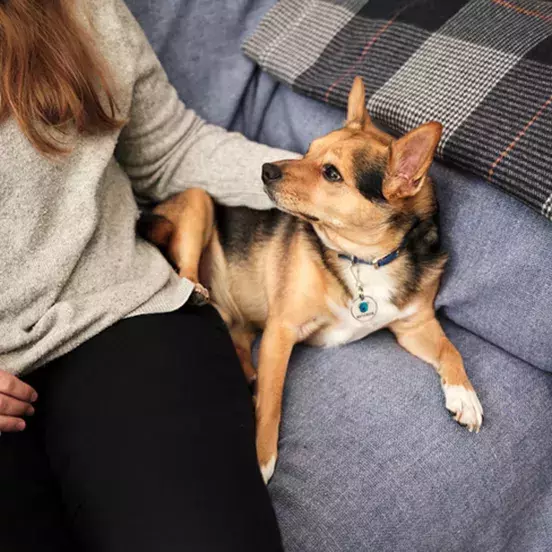The COVID-19 crisis has undoubtedly changed how we view pet ownership, with the benefits of having an animal now more pronounced than ever. As demand has risen, barriers to pet ownership have become an even bigger issue. One significant barrier is the ability of landlords and housing associations to be able to prevent tenants from owning animals. The unjust ways in which some rented housing contracts can limit dog and cat ownership has led to a sharp rise in the calls for pet-friendly properties, something we at Battersea fully support.

Pet ownership and COVID-19
Living with the COVID-19 pandemic has shone a spotlight on the value of our relationships with our pets. For many, owning a dog or cat has provided welcome companionship and has helped them overcome social isolation and loneliness. During long periods of lockdown, those relationships have been focused within the four walls of our homes.
The pandemic has also seen a huge rise in demand for puppies and kittens, with many becoming pet owners for the first time.
The rights of renters
The rise in demand has raised new potential conflicts for those renting their homes. The number of privately rented homes in the UK more than doubled between 2002 and 2016 and continues to increase year on year—38% of all UK households are currently rented either in the private or social sector.
There is a real challenge in striking a balance between the rights of tenants to live freely and enjoy the many benefits of owning an animal, versus the challenges for landlords who may have legitimate concerns about maintaining the condition of their property.
Over several decades, an acceptance of no-pet clauses in tenancy agreements has helped create a culture where pet ownership is viewed as a problem to be managed, rather than an opportunity to be supported. The experiences of the last year have undoubtedly shown the importance of revisiting that position.
Pet-Friendly Properties
This issue is of great importance to Battersea; housing issues is the second most common reason given for why people bring dogs to us. In 2018, we launched our first Pet-Friendly Properties report which examined the issue within social housing.
The report found:
- Pet ownership helps save the NHS a staggering £2.45 billion annually.
- Pet owners stay longer in their tenancies than non-pet owners.
- Pet owners are 60% more likely than non–pet owners to get to know people in their neighbourhoods.
This demonstrates the myriad ways in which owning an animal can boost personal health and support local communities.
This year we will publish a follow-up report which will look specifically at the private rental market, with further research to follow on how vulnerable groups can be supported to own a pet in their accommodation.
A welcome change in the Model Tenancy Agreement
It’s encouraging that the Government has recently revised the Model Tenancy Agreement—the template agreement that landlords can choose to base their contract with tenants on—to be more supportive of pet ownership. However, use of the agreement is voluntary and there are details that still need clarification. It’s still open to interpretation what a reasonable excuse is for a landlord to decline an application to have a pet, and more guidance is needed on how the appeals process should work.
An appetite for improvement
This month, Battersea helped co-ordinate an All-Party Parliamentary Group on Cats roundtable event on housing issues. Attendees heard representations from landlord associations and tenant groups, alongside politicians from all the big political parties.
The positive and constructive tone of these conversations was striking—this issue crosses the divisions between renters and landlords and bridges the political divide.
At Battersea, this gives us immense hope as we continue pushing for more people to enjoy the huge benefits that pet ownership brings, particularly in these most challenging of times.
